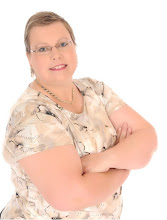Samuel S. Epstein, MD Author Interview
Jennifer Walker: When did you first discover that the cosmetics and personal care products we use every day are hazardous to our health? How did you make this discovery?
Samuel S. Epstein, MD: I have been concerned and written about this, apart from a wide range of avoidable causes of cancer and other toxic effects for decades including: my two-volume 1974 MIT Press book on Consumer Health and Product Hazards, which I co-edited, with a chapter on cosmetics by Ralph Nader; in my prize winning Anchor Press 1978 The Politics of Cancer; and much more so in the 1995 The Safe Shopper's Bible, which I co-authored; and also in several press releases on the non-profit Cancer Prevention Coalition ( www.preventcancer.com), which I Chair.
Jennifer Walker: It's hard to believe the FDA and other government agencies would be so callous about public health and safety as to turn a blind eye to the danger of these products. What is your answer to those who would attempt to discredit you on this basis?
Samuel S. Epstein, MD: the FDA has legislative authority under the 1938 federal Food Drug and Cosmetics Act, which it has never exercised. The facts are unarguable and I have never been challenged on this. (See p. 52-53 in Toxic Beauty).
Jennifer Walker: After reading the book, it might seem to some readers that most of us are so inundated with toxins from many years of exposure that it is useless to make a change to the products we use now. Can swapping out all the products in the medicine cabinet for those on the safe list make enough of a change to save or improve a life?
Samuel S. Epstein, MD: The larger the exposure, the greater the hazard to virtually 100% of the U.S. population, including the fetus with particular regard to maternal use of endocrine disrupters (hormonal ingredients).
Jennifer Walker: Toxic Beauty makes it seem as though using any of the listed products can produce side effects that range anywhere from skin irritation to death, depending on the toxin. However, I don't know of anyone who has experienced the effects I read about in the book. What is your answer to someone who would use this argument to ignore your advice? If I feel fine now, why should I change the products I use?
Samuel S. Epstein, MD: Allergens are the commonest toxic effect. As detailed in the book, its incidence has increased substantially over recent decades (p. 89-90). Genital abnormalities have been noted particularly in male infants from maternal exposure (p. 72-73). Non-Hodgkin lymphoma, a serious or even fatal cancer, is also related to the use of p-phenylenediamine in hair dyes (p. 107). Death from genital use of talc is also well documented (p. 92-96). Malignant melanoma is also well documented in adults following the use of sunscreens in childhood (p. 92-96).
Jennifer Walker: If you could tell everyone in the world to stop using one product, which would it be?
Samuel S. Epstein, MD: There are several good candidates for this, but I would give the highest priority to the genital use of talc, especially in black women (p. 92-96).
Jennifer Walker: Is your house completely clear of any products containing harmful ingredients? Do you think you are healthier for it?
Samuel S. Epstein, MD: The answer is yes, and increasingly so for well over three decades.
Jennifer Walker: What else would you like to say to convince my visitors of the need to read your book and heed its advice?
Samuel S. Epstein, MD: Unlike environmental or occupational exposures, cosmetics and personal care products are one of the relatively few areas where you can avoid toxic exposures.
Thank you to Dr. Epstein for dropping by!









No comments:
Post a Comment